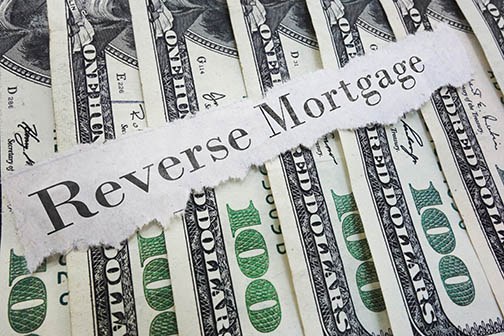 January’s National Association of Home Builders Housing Market Index dipped two points from December’s revised reading of 69 to 67; the index reading forecast for January was also 69.Analysts said that January’s reading was the second highest (after December 2016) since the peak of the housing bubble in 2005. January’s dip in builder sentiment was attributed to easing of builder enthusiasm, which spiked right after the U.S. presidential election. To put January’s home builder confidence reading in context, NAHB says that any index reading over 50 indicates that more builders than fewer have confidence in housing market conditions.
January’s National Association of Home Builders Housing Market Index dipped two points from December’s revised reading of 69 to 67; the index reading forecast for January was also 69.Analysts said that January’s reading was the second highest (after December 2016) since the peak of the housing bubble in 2005. January’s dip in builder sentiment was attributed to easing of builder enthusiasm, which spiked right after the U.S. presidential election. To put January’s home builder confidence reading in context, NAHB says that any index reading over 50 indicates that more builders than fewer have confidence in housing market conditions.
NAHB Sub–Index Readings for January
Three sub-index readings are used in compiling the NAHB Housing Market Index reading. Builder confidence in current housing market conditions fell three points to 72; builder confidence in housing market conditions over the next six months fell two points to 76. Builder confidence in buyer traffic in new housing developments dropped one point to 51.
Builders surveyed continued to cite the cost of new lots for development and the lack of skilled labor as obstacles to higher builder confidence.
After releasing January’s index readings, the NAHB said that while January’s readings were lower than those for December, a majority of builders have expressed confidence that the new administration will reduce regulatory pressure on home builders. NAHB also cited home builder concerns over mortgage rates, which rose nearly a percentage point in November and December before falling. Despite ongoing concerns, builder sentiment has steadily improved over time. On average, builder confidence averaged a reading of 61 in 2016 against 2015’s average reading of 59 and the 2014 average reading of 52.
Builder Outlook Seen as Key to Easing Home Shortage
Real estate and mortgage pros have consistently said that building more homes is necessary to ease the ongoing shortage of available homes. NAHB’s Housing Market Index is closely followed as a benchmark of home builder confidence. Higher builder confidence in current and future housing market conditions is viewed as a potential indicator of home building activity, but housing starts have not been uniformly allied with builder confidence.
Shortages available homes creates high demand creates concerns for potential buyers seeking affordable homes. Rapidly rising home price, particularly in high demand metro areas, have sidelined buyers who cannot compete against buyers making cash offers on homes with rapidly escalating prices.
 Many people are aware of the financial commitment that is involved when investing in a home, but what that amounts to is different for every person. From what you can afford to what a lender will allow, there are plenty of details involved in determining the right home for you. If you’re not quite sure what the right price is, here’s how to approach home ownership and determine your debt-to-income.
Many people are aware of the financial commitment that is involved when investing in a home, but what that amounts to is different for every person. From what you can afford to what a lender will allow, there are plenty of details involved in determining the right home for you. If you’re not quite sure what the right price is, here’s how to approach home ownership and determine your debt-to-income. Last week’s economic reports included readings on job openings, retail sales and consumer sentiment in addition to weekly reports on new jobless claims and Freddie Mac’s survey of mortgage rates.
Last week’s economic reports included readings on job openings, retail sales and consumer sentiment in addition to weekly reports on new jobless claims and Freddie Mac’s survey of mortgage rates. There are a variety of mortgage products out there that serve the needs of different homeowners, but for the uninitiated it can be hard to know what will work best for them. If you happen to be close to retirement and are looking at options that will be more financially beneficial for you, here are the details on a reverse mortgage and how this product can work for you.
There are a variety of mortgage products out there that serve the needs of different homeowners, but for the uninitiated it can be hard to know what will work best for them. If you happen to be close to retirement and are looking at options that will be more financially beneficial for you, here are the details on a reverse mortgage and how this product can work for you. Once you’re done with debt and you’ve started to save, it’s commonly the case that you’ll start hearing about the risks and rewards of investing in stocks or real estate. Unfortunately, it can be difficult for many people to know what type of investment is going to work better for them down the road. If you’re currently considering what you should put your money into, here are some reasons you may want to turn to real estate.
Once you’re done with debt and you’ve started to save, it’s commonly the case that you’ll start hearing about the risks and rewards of investing in stocks or real estate. Unfortunately, it can be difficult for many people to know what type of investment is going to work better for them down the road. If you’re currently considering what you should put your money into, here are some reasons you may want to turn to real estate. There was a time when a higher percentage of people were married before they committed to buying a home together, but it’s a lot more common to co-habit and invest in a home together. If you’re considering the commitment of a mortgage without being married, here are some things to be aware of before you start searching the market.
There was a time when a higher percentage of people were married before they committed to buying a home together, but it’s a lot more common to co-habit and invest in a home together. If you’re considering the commitment of a mortgage without being married, here are some things to be aware of before you start searching the market.